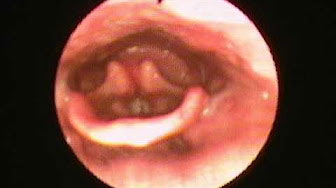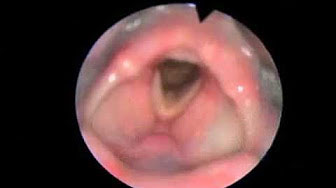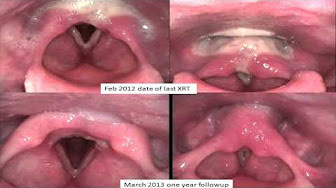


Fiberoptic Endoscopic Evaluation of Swallowing
We provide Fiberoptic Endoscopic Evaluation of Swallowing (FEES) studies for dysphagia patients. This is a cost-effective alternative to Modified Barium Swallow Studies (MBS).
Philadelphia Mobile FEES, LLC will travel to your skilled nursing facility, nursing home/long term care facility, subacute facility, LTACH, acute care or ENT offices to perform the FEES procedure, for one simple flat rate. We provide services in Philadelphia, and the surrounding areas.
Contact us today for additional information or to schedule a clinical in-service.
Swallowing has 3 phases, oral, pharyngeal and esophageal. Problems or difficulties in any or all of these phases is known as dysphagia.
The oral phase involves acceptance of food or liquids, chewing and how a person moves the food or liquid into the throat.
The pharyngeal phase involves starting the swallowing reflex, squeezing food down the throat, and closing off the airway to prevent food or liquid from entering the airway (aspiration) or to prevent choking.
The esophageal phase relaxing and tightening the openings at the top and bottom of the feeding tube in the throat (esophagus) and squeezing food through the esophagus into the stomach.
Aspiration is when food or liquid passes below the vocal folds and into the airway. Silent aspiration is the lack of sensory response (cough, throat clear, etc.) to aspiration. This can lead to pneumonia and respiratory complications.
"Swallowing and feeding disorders occur with multiple medical diagnoses across the age spectrum from premature infants to geriatric adults. Incidence and prevalence vary among diagnostic groups. Morbidity related to dysphagia can be a major concern. For example, dysphagia resulting from stroke is considered to be a major cause of morbidity due to respiratory complications, such as pneumonia and malnutrition (Gordon, Hewer, & Wade, 1987; Gresham, 1990; Veis & Logemann, 1985). The mortality for hospitalized elderly patients with pneumonia is 43% (Gonzalez & Calia, 1975). In addition, the cost of the consequences of feeding and swallowing disorders must be taken into account.
Medical costs can be calculated per episode of pneumonia (Fein, 1999). An average hospitalization cost for treating pneumonia is $13,790 (University of Miami/Jackson Memorial Medical Center, Miami, FL, 1999). For the typical patient receiving home enteral nutrition, the annual cost of therapy was $18,000, but ranged from $5,000 to $50,000, based on 1996 data (Reddy & Malon, 1998). The cost of lifestyle alterations and caregiver burden is more difficult to determine, but can have enormous impact on individuals and others in their environment."
An overview of populations for which there is evidence of swallowing disorders follows.
Research varies



MBS-Modified Barium Swallow Study
MBS or Videofluoroscopic Swallow Study is a radiologic examination of oral, pharyngeal, and esophageal phases of swallowing that uses x-ray. This test must be performed in a video-fluoroscopy suite of a hospital with a radiologist, radiology tech, and speech-language pathologist. The patient must be seated upright for the study and is given barium impregnated foods. The study is typically time limited to reduce the patient’s exposure to radiation. Recommendations for safest diet level can be made following the study.
| Mobile FEES | MBS |
| Study is completed in patient’s own environment, allowing for natural positioning | Study completed in radiology dept of hospital in upright chair |
| No size or position restrictions | Width/weight restrictions depending on equipment. |
| Real food with food coloring | Food mixed with barium- high toxicity rate if aspirated. |
| No time constraints or breaks in study allows for assessment of effects of fatigue on swallowing function | Limited assessment time due to radiation exposure. |
| Save $ on transportation/escort costs. No radiology fee | $500-$1000 for transportation cost, in addition to an escort, if needed. |
| Study can be scheduled quickly |
Wait times of a week or more to coordinate scheduling |
| No lost therapy time while patient is out of the facility | Patient out of facility for prolonged period. |
| Primary SLP able to be present for evaluation and contribute | Unfamiliar therapist completing the study with limited information. |
April attended LaSalle University - where she was able to build her framework and began to cultivate meaningful knowledge, deepen her understanding of working with and for others, and developed an extensive network within the Philadelphia speech pathology community. She participated in an intensive accelerated five year program for Speech, Language, and Hearing Science - successfully receiving her Bachelor's degree and ultimately her Master's degree in 2012. April holds a Certificate of Clinical Competence from the American Speech and Hearing Association (ASHA), and is licensed to practice in both Pennsylvania and New Jersey. April possesses dynamic experience in various clinical settings, including: outpatient, skilled nursing facilities, long term care, long term acute care hospitals/transitional care and acute care hospitals. April also has a diverse background in the patient populations she works with, inclusive of: tracheostomy/ventilator, dementia, neuro, trauma, etc. While working in the LTACH setting, she began to show a strong interest in the Fiberoptic Endoscopic Evaluation of Swallowing (FEES), and decided to pursue special training which would enable her to perform FEES in a clinical setting as well. In order to ensure the best possible service is being provided to the patient, April has collaborated with SEC Medical Speech Pathology Consulting & Training, who have over twenty years of experience, to enhance and develop Philadelphia Mobile FEES, LLC.
April's passion for helping others coupled with her knowledge of dysphagia is not only the foundation for Philadelphia Mobile FEES, LLC, but also what sets it apart from the rest. Prior to being trained in FEES, April experienced the obstacles of coordinating Modified Barium Swallow Studies in the skilled nursing facilities and LTACH settings. FEES provided a needed convenience for the patients and facilities, and quickly became the preferred method for dysphagia diagnostics. April's determination and commitment to simplify the delivery of dysphagia diagnostics to patients in need is what led to the establishment of Philadelphia Mobile FEES, LLC.
You can schedule a FEES in just a few short steps.
**If your facility does not have a contract with Philadelphia Mobile FEES, LLC please contact (215) 806-2481 or april@philamobilefees.com to set up a meeting or schedule a free inservice!